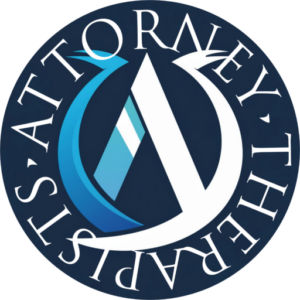The legal profession has long been associated with high levels of stress, demanding workloads, and exacting intellectual rigor. While these characteristics may be expected of a high-stakes field, the mental health toll on early-career attorneys has become increasingly apparent. Recent studies highlight a concerning prevalence of burnout and depression among young lawyers, with many reporting a profound sense of disillusionment and emotional exhaustion within just a few years of practice. This article seeks to examine the underlying psychological and developmental dynamics contributing to this crisis, particularly focusing on the heavy reliance of attorneys on intellect and academic achievement as foundational tools for navigating life. We explore the breakdown of these strategies in professional practice and the resulting existential crises that may ensue.
Burnout and Depression in Early-Career Attorneys
Numerous empirical studies have documented the high rates of psychological distress among lawyers. A seminal study by Krill, Johnson, and Albert (2016), published in the Journal of Addiction Medicine, found that 28% of licensed, employed attorneys experience symptoms of depression, 19% exhibit symptoms of anxiety, and 21% qualify as problem drinkers. Particularly vulnerable are attorneys in the early stages of their careers, who report higher levels of distress compared to their more seasoned counterparts.
Burnout—characterized by emotional exhaustion, depersonalization, and a reduced sense of personal accomplishment—is a frequent and often overlapping condition with depression. A 2020 study in the Georgetown Journal of Legal Ethicsunderscored how burnout in attorneys frequently stems from the persistent dissonance between professional demands and personal values, a chasm that often widens over time.
The Over-Reliance on Intellect and the Crisis of Adaptation
Many early-career attorneys have spent their formative years cultivating intellectual prowess as the primary mode of problem-solving and self-worth. Academic environments reward analytical precision, structured thinking, and performance-based validation—traits that correlate strongly with traditional legal training and success in law school. However, when these individuals enter the messy, ambiguous, and often emotionally charged realities of legal practice, their intellectual strategies can prove insufficient.
Clients present with chaotic lives and irrational behaviors. Legal outcomes are often unpredictable. Interpersonal dynamics in law firms can be toxic or stifling. The intellectual tools that once secured admiration and control now fail to deliver meaningful connection or emotional fulfillment. The result is a mounting sense of futility—a cognitive dissonance that the mind cannot resolve through logic alone.
The Spiral of Rumination and the Emergence of Hopelessness
Faced with diminishing returns on their intellectual strategies, early-career attorneys may turn inward in search of answers. Unfortunately, this often takes the form of rumination—a repetitive, negative thought cycle that can exacerbate depression. Rather than facilitating insight, rumination tends to amplify self-criticism and helplessness. Lawyers, trained to analyze and overanalyze, may find themselves stuck in a recursive loop of self-doubt and imagined catastrophes.
The phenomenon aligns with findings from research on perfectionism and cognitive rigidity among professionals. A 2014 study by Dyrbye et al. in Academic Medicine observed that medical professionals with high cognitive control but low emotional flexibility were more prone to burnout and depressive symptoms. Similar patterns have been noted in attorneys, whose training often emphasizes dichotomous thinking—right vs. wrong, win vs. lose, success vs. failure.
Existential Crisis and the Challenge of Reorientation
As burnout deepens and hope wanes, many early-career attorneys encounter what is best described as an existential crisis. The realization that their long-relied-upon strategies are no longer effective forces a confrontation with uncertainty, vulnerability, and the limits of rationality. For a population accustomed to mastering environments through intellect, this confrontation can feel destabilizing and even terrifying.
Professional intervention is often necessary at this juncture—not merely to manage symptoms, but to help the attorney reorient their approach to life. Psychotherapeutic modalities such as existential therapy, Acceptance and Commitment Therapy (ACT), and mindfulness-based interventions have shown promise in helping individuals shift from a control-based, intellect-dominant paradigm to one that embraces uncertainty, emotional experience, and relational connection.
Dualistic Thinking and the Inability to Embrace Uncertainty
The legal mind is conditioned to seek clarity, precedent, and resolution. These traits, while adaptive in courtroom or contract settings, become liabilities when applied to the unpredictable terrain of human emotion and life purpose. Dualistic thinking—a tendency to view experiences in binary terms—prevents many attorneys from embracing the gray areas of life.
As highlighted in a 2019 study in The Clinical Lawyer, attorneys with high levels of cognitive rigidity showed significantly lower psychological resilience and adaptability. The inability to tolerate ambiguity often leads to increased anxiety and a retreat into avoidance behaviors or substance use.
Conclusion
The path to becoming a lawyer is one of intellectual meritocracy, but the path to staying well in the profession requires a different set of skills: emotional openness, adaptability, and a willingness to relinquish control. For early-career attorneys, the breakdown of intellectual strategies can lead to profound psychological crises, but also to an opportunity for growth and transformation—if properly supported. Addressing this growing mental health crisis demands a shift in how the profession values and trains its members, encouraging a more holistic approach that goes beyond the mind and into the heart of what it means to be human.
References
- Krill, P. R., Johnson, R., & Albert, L. (2016). The Prevalence of Substance Use and Other Mental Health Concerns Among American Attorneys. Journal of Addiction Medicine, 10(1), 46–52.
- Dyrbye, L. N., West, C. P., Satele, D., Boone, S., Tan, L., Sloan, J., & Shanafelt, T. D. (2014). Burnout Among U.S. Medical Students, Residents, and Early Career Physicians Relative to the General U.S. Population. Academic Medicine, 89(3), 443–451.
- “Burnout and the Young Lawyer: The Ethics of Self-Care.” Georgetown Journal of Legal Ethics, 33(3), 2020.
- “Cognitive Rigidity and Emotional Resilience in Legal Professionals.” The Clinical Lawyer, 5(1), 2019.








